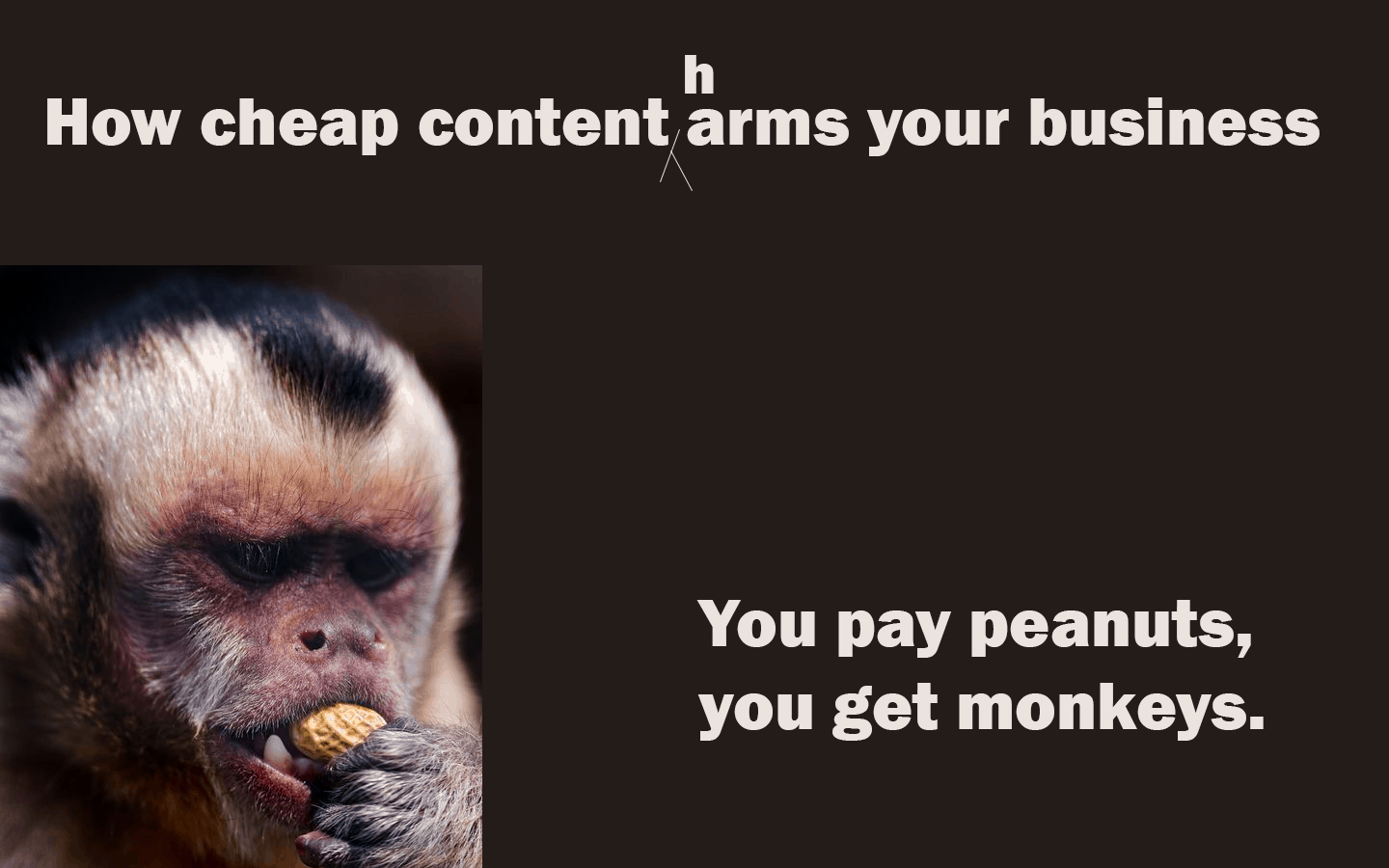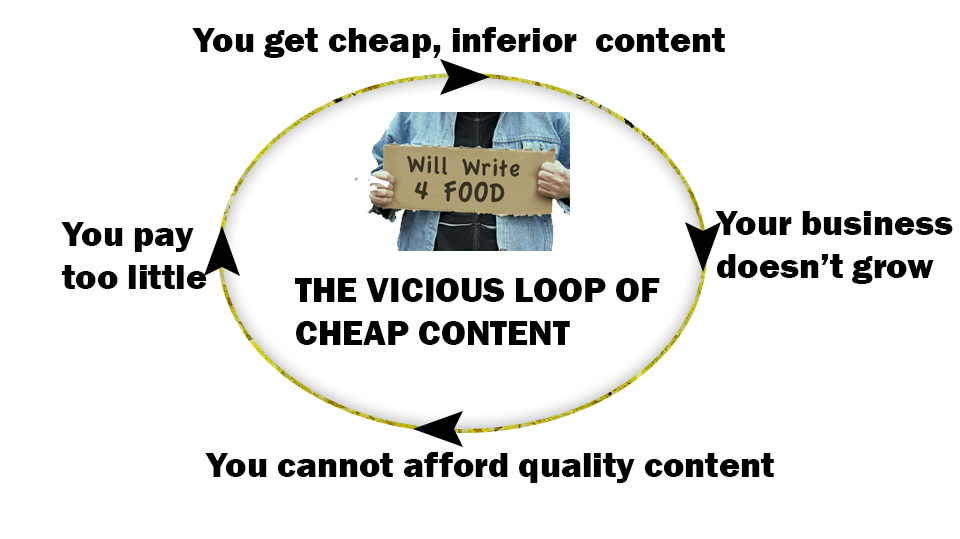 I am writing this blog post for the benefit of those clients who often wonder why they should pay the amount I’m asking for. In more than 90% cases it doesn’t happen, but I think even if 10% clients have some doubt it makes sense to explain to them, what they are paying for.
I am writing this blog post for the benefit of those clients who often wonder why they should pay the amount I’m asking for. In more than 90% cases it doesn’t happen, but I think even if 10% clients have some doubt it makes sense to explain to them, what they are paying for.
What is content writing basically?
Content writing is of many forms but what I provide is a service that should help you build your business and put your best foot forward. I’m not in the business of providing $3-articles to improve your search engine rankings (they rarely do, and even if they do, it is a fluke that sometimes work and most of the times doesn’t).
I help you convey your message in a manner that it convinces your customers and clients to put your trust into your product or service (and into you) and consequently, do business with you. What I provide is a mix of content writing and copywriting. I might not be an excellent writer (I am gradually getting there) but when you want to speak your mind and when you want to make the right impact, I can certainly help you.
My content writing is a mix of content writing and copywriting
The fundamental purpose of copywriting is to help you sell, whether it is your product, your service, or your ideology or idea. Content writing on the other hand educates and informs your present and prospective customers and clients and creates a ripe ground for the business to take place.
So the content on your business website must be a balanced cocktail of content writing and copywriting. This is especially true when I’m writing for your homepage. Think of your home page as your front office if you open a brick and mortar business. You would like it to look its best and you won’t decorate it with cheap stuff. Every item in your front office reeks of professionalism.
Your website is your online office and your homepage is your front office. Although unlike a brick and mortar office, there are as many entrances to your website as there are pages and blog posts under your domain, eventually, sooner or later, people reach your homepage and this is where the most critical impact is made. You need to inform your visitors. You need to educate them as laconically as possible. And then you have to turn them into paying customers and clients.
Just like home page, most of the links appearing in your top most navigation are highly critical and in fact, sometimes they are more important than your homepage (because it is not possible to pack every bit of crucial information into your homepage).
So when you’re paying your content writer who is practically creating an entire business presence for you and you are wondering why you are paying what you’re paying, think about how crucial his or her job is. If you’re getting your content written professionally, it means that you understand that it matters to your business what text there is on your website.
I’m not saying pay your content writer through your nose and pay him or her at the cost of your business infrastructure, but don’t go for as cheap content as possible. Believe me, whether you do business with me or not, this doesn’t work. It might cost you your business if just at the outset you try to save on the most crucial aspect of your online presence – your website content.



